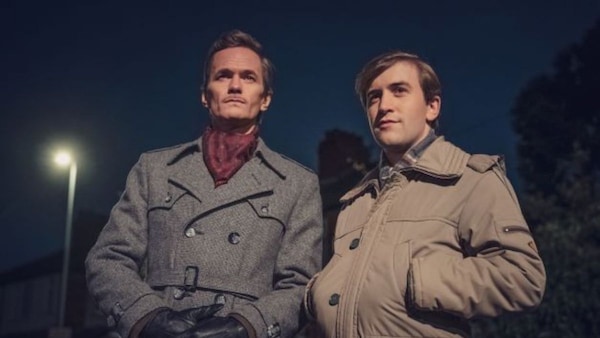It’s a Sin review: The tragedy of an epidemic that the world ignored
Russell T. Davies’ five-part mini-series is a harrowing tale of lives that were affected by the AIDS epidemic in 80s London

Last Updated: 03.50 PM, Feb 08, 2022
Story:
The mini-series follows the lives of three gay men, Ritchie, Colin, and Roscoe, and their two friends Ash and Jill, as they navigate through the 80s in London when a new deadly virus emerges that apparently kills only gay men.
Review:
It's a Sin creator Russell T. Davies has earned quite the reputation when it comes to telling stories about the taboos surrounding the gay community, even in some of the more progressive cities of the Western world. The new mini-series touches a range of emotions from joy to sorrow to heartbreak. And despite its rather bleak outlook, the entire narrative is fixed around wit and humour. The cinematography aids the narrative with its vibrant recreation of the 80s lifestyle in London. The stirring performances by Olly Alexander (Ritchie Tozer), Ash Mukherjee (Nathaniel Curtis), Lydia West (Jill Baxter), Calum Scott Howells (Colin Morris-Jones), and Omari Douglas (Roscoe Babatunde) elevates the plot and helps in exploring themes such as homosexuality, racism and trauma, among others.

The central plot of the mini-series is relatable on several different levels to contemporary social-political themes, and especially are the eerie similarities to the current global Covid pandemic. However, despite its many parallels with regards to the limited information and misinformation regarding the virus, there are some striking differences. Unlike the Covid pandemic, the AIDS epidemic was one that was ignored by large sections of society and the establishment. It largely alluded to the fact that AIDS came with the label of being associated only with gay men in the early 80s — people who were regarded as social deviants with questionable moral choices even in metropolitans such as London. It is important to note that it remains a social taboo to this date in many parts of the globe.

Davies has subtlety incorporated racial profiling into the story, without the need for obvious exposition. The themes of racial discrimination are not entirely in the black and white spectrum, instead, it delves into the grey areas regarding the subject. The series achieves this through its flawed yet fleshed out characters that resonate with the audience. The first episode is entirely dedicated to establishing the primary characters and their arcs. Even though the series begins with upbeat optimism, it soon descends into a sombre tale about society and the system turning their backs on a marginalised community. The series jumps through the 80s in each episode as the audience gain a different perspective about the inhumane methods adopted to ostracise the gay community, denying them basic human rights. In other words, the series humanises these individuals who have been crushed by the weight of society’s neglect and refusal to stop demonising and dehumanising individuals based on their sexual orientation. In one particularly heartbreaking scene, Colin tells his mother after contracting AIDS that he isn’t ‘dirty’. It highlights Colin’s innocence and despite his best efforts of being a wonderful human being, he died painfully and in shame of being labelled immoral.

Jill’s monologue to Ritchie’s mother in the final episode beautifully captures the essence of It’s a Sin. The riveting performances by Lydia West and veteran British actress Keeley Hawes make this scene one of the best in television in recent years. It adds several layers to the story both thematically and narratively, whilst exposing the several hypocrisies of society surrounding morals and ethics. The idea that several AIDS patients died alone and believing that they deserved their fate is cruel and tragic in equal measure. The final scenes will force a few tears from even the most stoic of audiences as it highlights the primary characters full of life, joy, and laughter.
Verdict:
The series is a well-written and well-performed satire that narrates a deeply compelling tale rich in subtext but also blunt in the message it is trying to convey.
Subscribe to our newsletter for top content, delivered fast.

